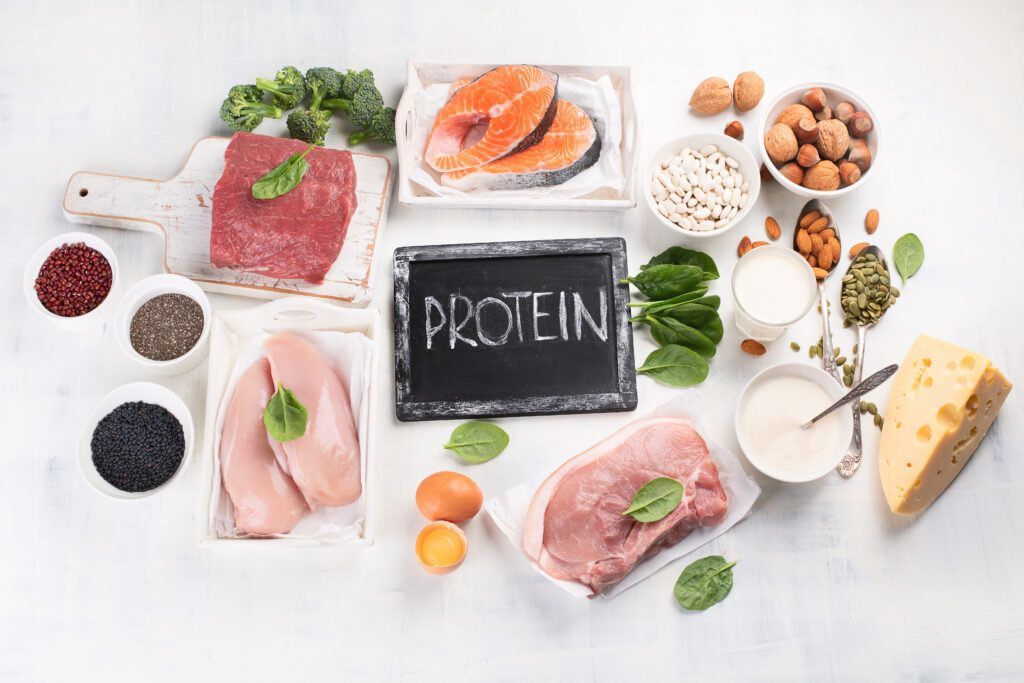Proteins breakdown into amino acids.
These building blocks construct and restore bodily tissues.
In times of necessity, they can alternatively serve as a source of energy.
If excessive amounts of protein are consumed, the extra will be converted to body fat just as any other nutrient would be.
Let us explore hormonal, nutritional, and ethical considerations
Reasons we need proteins
Muscle mass
Recovery
Stabilize blood glucose levels
Weight loss
Reduce hunger
Increase metabolic rate
Mood boosting
Heart health
Stronger bones
Protein Sources
Chicken
Turkey
Lean cuts of beef
Venison
Bison
Pork tenderloin
Fatty varieties of fish
White varieties of fish
Seafood
Eggs
Dairy products
Whey protein powder
Tempeh, tofu
Soybeans
Beans and lentils (also supply a high amount of carbohydrates)
Nuts and nut butter
Importance of meat quality
Hormone influences, nutritional aspects, and ethical considerations.
Additionally, we explore the importance of protein and amino acids derived from humanely treated animals, wild or farmed fish, eggs and chickens raised in optimal conditions.
Hormonal Influences:
Meat production can have the presence of hormones. Livestock farming frequently involves the administration of hormones to expedite growth and enhance meat yield, which can potentially impact human health.
Animals themselves produce stress hormones, such as cortisol, particularly in distressing living conditions. These hormones may persist in the animal’s system at the time of slaughter,bringing those extra stress hormones into your body.
(What are the effects of added hormones from animal we eat- into the body… chronically)
Nutritional Quality:
The nutritional quality of meat is intricately linked to the animal’s livelihood and diet.
According to https://mercyforanimals.org/blog/what-they-feed-animals-on-factory-farms-is/ Animals on factory farms are treated as mere objects. The meat, dairy, and egg industries relegate them to intense and unimaginable cruelties including extreme confinement; brutal mutilations; and bloody, violent deaths.
Ethical Considerations:
We should care how an animal is treated before consumption. Because they are raised as food, the laws of ethical treatment are a gray area and if a consumer saw how their dinner was treated, would not enjoy the wagyu filet and fine wine at their favorite restaurant.
Animals raised in confined spaces and subjected to stressful conditions endure significant suffering. With sustainable farming methods prioritizing animal welfare, animals roam freely, express natural behaviors, and receive proper sunlight exposure.
Importance of Protein and Amino Acids:
Protein and amino acids derived from humanely treated animals are important and crucial for human nutrition.
Eggs are a rich source of high-quality protein and essential amino acids. Chickens that roam freely and have access to a varied diet produce eggs with superior nutritional profiles.
